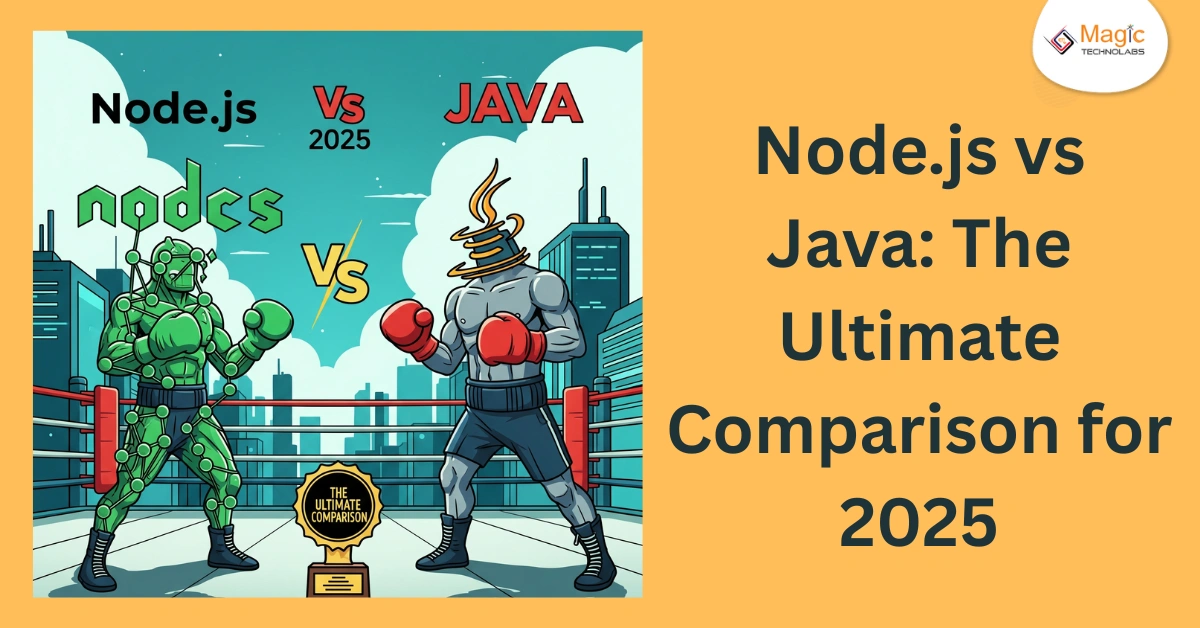When you are thinking about a new 2025 software project then you have probably asked yourself:
Should I be a Node.js or Java user?
It is a popular, good question. They are both well established, widely used and depended on by start ups and enterprise companies. They are simply so different in what they do and the way they do it and how they scale.
Which then do you prefer?
Can be plainly stated, and doesn t require a degree in computer science, at this post. In case you are an entrepreneur, founder of a start up, or a project leader of the dev team, then this post will provide you with the information you should consider to make the best decision concerning your project.
What is Node.js?
Node.js is a JavaScript engine that uses chrome v8 engine. It enables you to compile JavaScript on the server not just on the browser.
That is, full-stack application can be done using JavaScript on both the backend and the frontend.
Ideal to build fast, ability-to-scale-up real-time applications such as chat app, streaming services or APIs.
So what is Java?
Java is the object-oriented general-purpose programming language that has a history of over two decades. It is known to be stable, portable and have massive ecosystem.
It is appropriate in applications used at enterprise level, banking systems or Android applications development, and huge platforms.
Key differences: Node.js vs Java
We will juxtapose them in the fight of what really counts
1. Performance speed
Node.js can be described as non-blocking and single-threaded I/O, hence it is very efficient in handling multiple requests at the same time (e.g. chat app or game).
Java is multi-threaded, very stable, and it is perfect to handle complex calculations or run complex processes in a long period.
The winner: Node.js on I/O-intensive applications, Java on CPU-intensive applications.
2. Scalability
Node.js is light and has very low horizontal scalability (ability to add other machines).
Java is scaled vertically (more processing power to a single machine) and is normally used in enterprise environments.
Tie - it depends on what architecture do you have and what type of traffic is it.
3. Learning Curve
Node.js suits noobs better in case you are knowledgeable in JavaScript.
Java includes strong typing and deep control which other developers prefer, and it happens to have a steeper learning curve.
Victor: Node.js on recent and picky development.
4. Development Speed
There is simply a huge number of available open-source packages (via npm) so things can be developed quicker with Node.js.
Java too has excellent frameworks such as Spring, only that it takes long to set up and configure everything.
Winner: Node.js to develop MVPs and startups.
5. Security
Java offers high levels of security and it is the preferred language of finance and business applications.
Development of Node.js can be made secure, although it requires extra consideration with packages and user input.
The Winner: Java on sensitive data and the highly secured applications.
6. Use Cases
UseCase\tBest Choice
Instant messaging/games\\tNode.js
Enterprise / bank products\\tJava
RESTful APIs and microservices\tNode.js
Developing Android apps\tJava
Both cross-platform backend systems
7. In 2025 Ecosystem & Community
Java and Node.js also possess a good global community, active contributors and excellent documentation. However, Node.js has been rising fast in new startups and green-field tech stacks, but Java is enjoying the status of a legacy darling in the enterprise.
Tie - according to your developer network and business objectives.
Concluding Remarks: In sum, which one should you use?
Choose Node.js in case you want:
Quicker cycles of development
Real-time communication
Minimal high tech stack
A single language all around: frontend and backend
Use Java in case:
Rock-solid performance
High-security features
Enterprise-grade reliability
Long-term scalability
The Bottom Line:
There is nor a universal solution. Both Node.js and Java are wonderful in their nature. Whatever is best depends on the goals of your project, skills of your team, and long-term vision.
Still unsure? Let us talk, and I will help you decide what will be the best in your business in 2025. No technical terms, so simple tips.
















